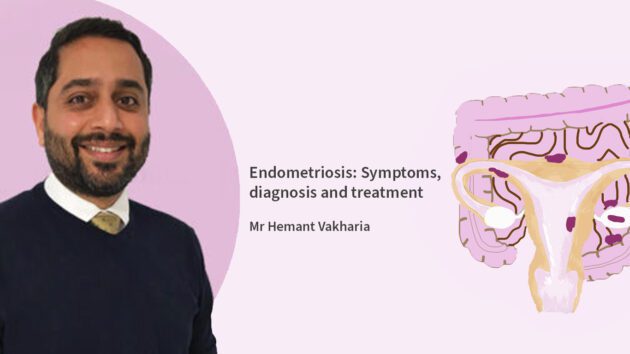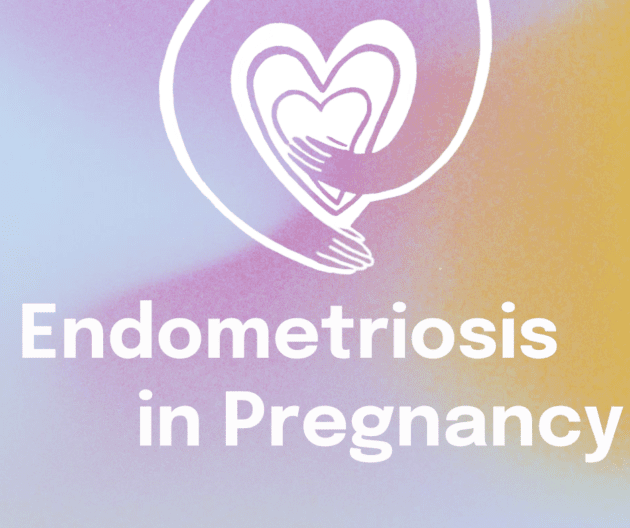
Endometriosis: symptoms, diagnosis and treatment
1 in 10 women of reproductive age in the UK suffer from endometriosis (Endometriosis UK).
Endometriosis is an oestrogen driven, chronic inflammatory condition that most commonly affects pelvic organs but can also in some cases can occur at different areas of the body including the bowel, diaphragm (a muscle that sits at the base of the chest) and in the chest cavity. It can present in several ways as discussed below. Whilst pain is a major feature in endometriosis, the impact it can have on those who suffer with it can be enormous, which is why prompt diagnosis and treatments are crucial.
Mr Hemant Vakharia, consultant gynaecologist and advanced laparoscopic surgeon discusses the symptoms of endometriosis, how the condition can be diagnosed and treatment options including surgery.
Symptoms
Symptoms of endometriosis include:
Painful periods (Dysmenorrhoea)
- Endometriotic cells are stimulated by hormones in your natural cycle which causes inflammation and pain
Pain with intercourse (Dyspareunia)
- The inflammation can lead to structures in the pelvis sticking together and also lead to thickened nodules of endometriosis developing. As a result, patients with endometriosis can have pain with intercourse.
Pain opening your bowels (Dyschezia)
- In patients who have endometriotic deposits on bowel, or in those where the inflammation has caused their bowel to stick to other structures, it can be painful to open there bowels. This can occur with their periods or all the time.
Other symptoms include:
- Chest pain when on your period
- Difficulty conceiving
- Ovarian cysts noted on scan
Diagnosis:
How to diagnose endometriosis: investigations
- Clinical Examination
- Ultrasound Scan
- Blood tests
- MRI
- Laparoscopy (also to treat)
Would someone have one of the above investigations over the other?
The investigations usually always start with an ultrasound and the in some cases patients will go on to have an MRI and blood tests.
Not all endometriosis can be seen on imaging so a laparoscopy can be offered in cases where the patients have symptoms and imaging doesn’t reveal anything.
What can someone expect during consultation at London Gynaecology?
Normally it would start with a detailed history and then reviewing imaging. Not all patients need to be examined, especially if they’ve had a scan prior.
Treatment:
Patients can be treated with the combined pill, progesterone only pill, progesterone intrauterine device or surgery. Sometimes we use medication that induces a temporary menopause by blocking hormonal signals to the ovary. This reduced stimulation of the endometriotic tissue. This option is often used before surgery for severe disease.
What is bowel endometriosis?
Bowel endometriosis is where the endometriotic deposits are on top of the bowel or in the bowel wall.
What is a Laparoscopy?
Overview:
- Keyhole surgery
- Uses small cuts in the abdomen
- 5-10mm incisions
- Inspect pelvis
- Can treat many conditions
What are the benefits of laparoscopy for the treatment of endometriosis?
A laparoscopy will allow diagnosis and excision of disease which can improve symptoms.
Make an Appointment
Mr Hemant Vakharia sees and manages patients for endometriosis at our locations at Austin Friars (near Liverpool St) and at The Portland Hospital in Central London. If you wish to book an appointment with Mr Hemant Vakharia for suspected endometriosis, the most convenient way to do so is via our booking tool, select, ‘Endometriosis Consultation’ from the drop down list. For appointment enquires, please call our team on 020 7101 1700 or email [email protected].



